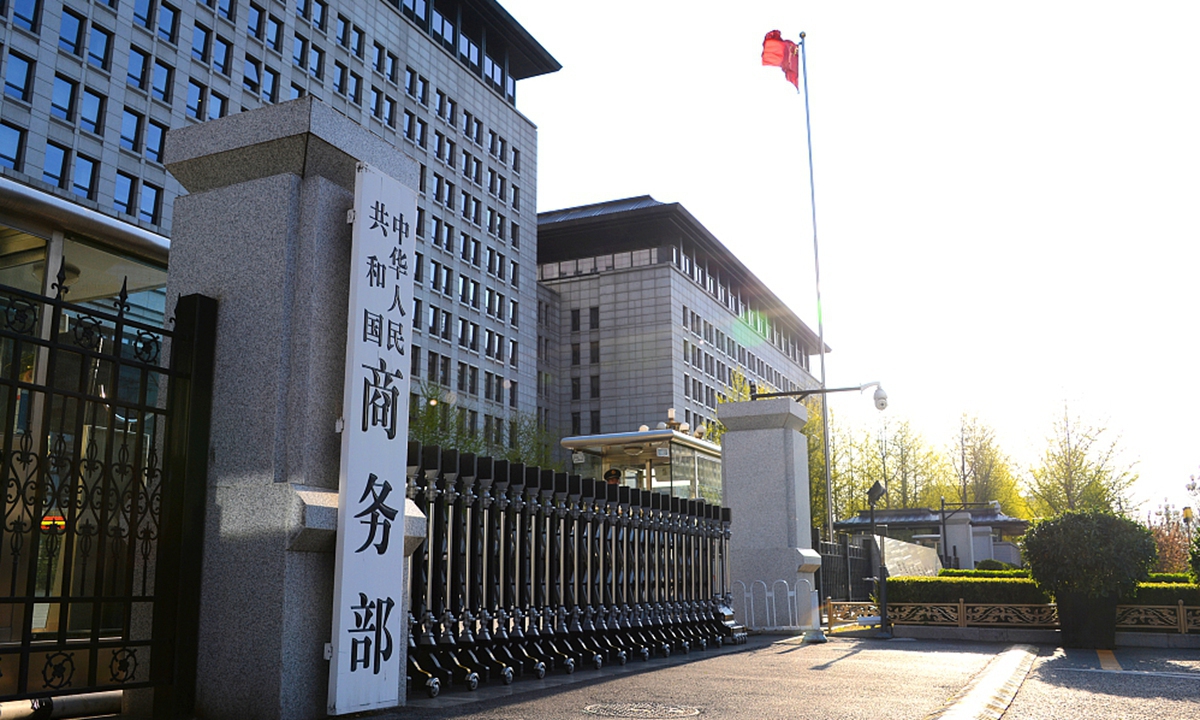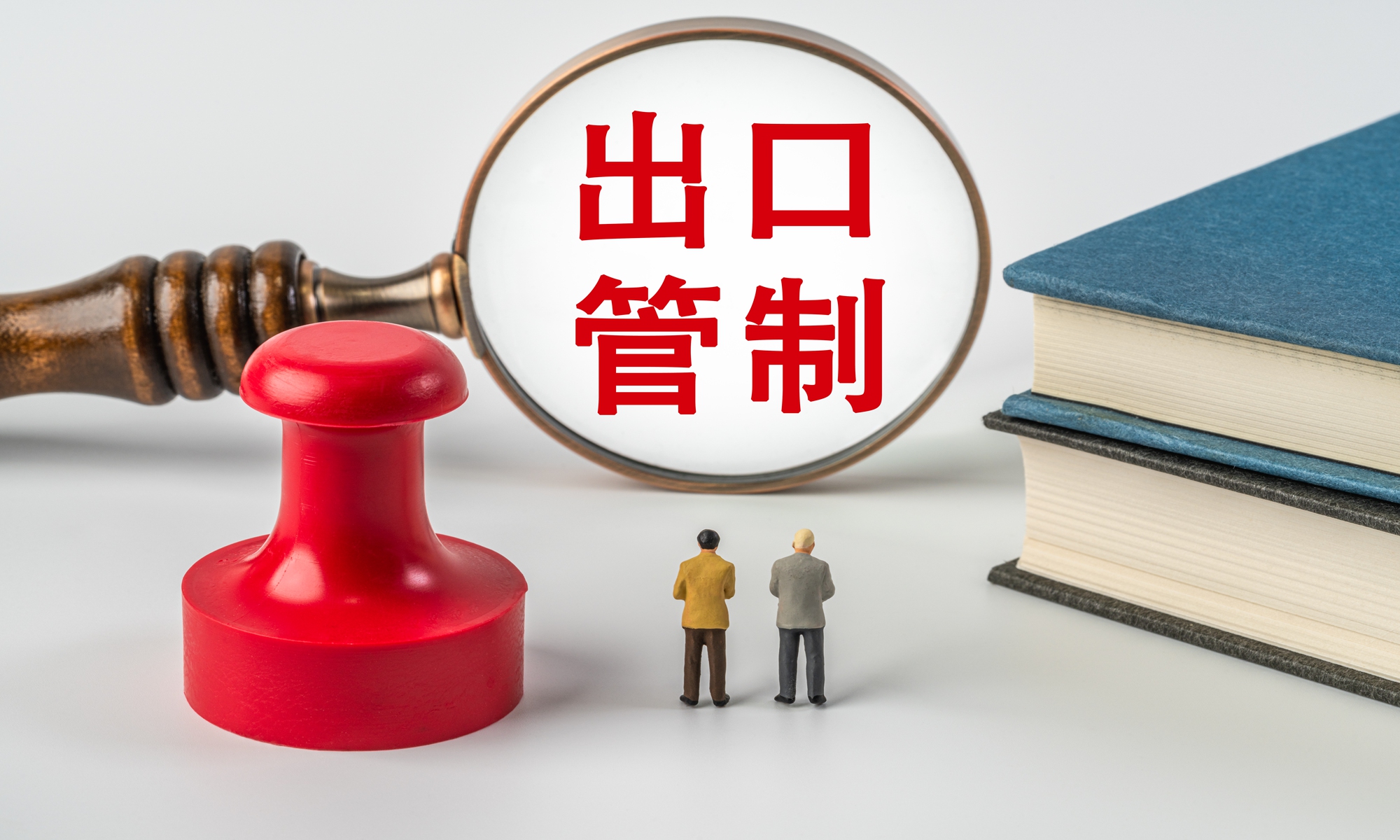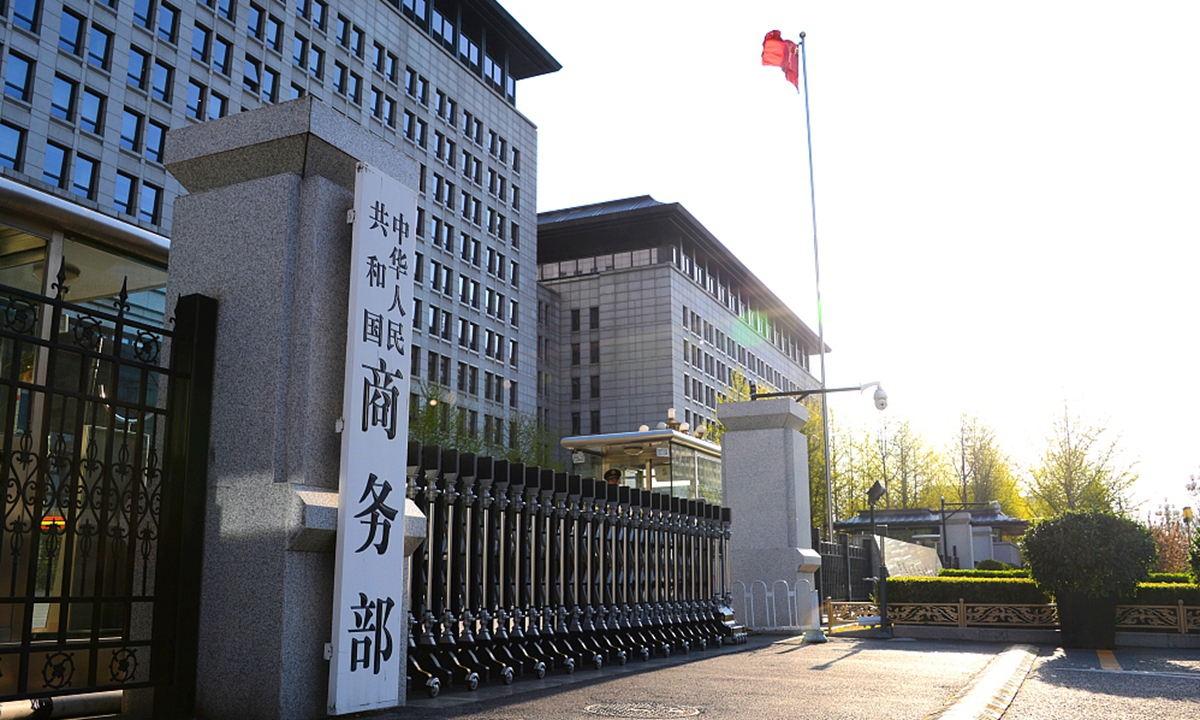
The Ministry of Commerce Photo: VCG
China's Ministry of Commerce on Tuesday announced measures to tighten controls on the export of relevant dual-use items to the US, as part of efforts to safeguard national security and interests and fulfill non-proliferation and other international obligations.
In recent years, the US has generalized the concept of national security, politicizing and weaponizing economic and technological issues. It has abused export control measures, arbitrarily restricted exports of relevant products to China and placed multiple Chinese companies on sanctions lists to suppress and contain them. This behavior seriously undermines international trade rules, severely damages the legitimate rights and interests of these enterprises, and disrupts the stability of global industrial and supply chains, a MOFCOM spokesperson said.
To protect national security and interests, fulfill international non-proliferation obligations and in accordance with China's Export Control Law and regulations, China decided to tighten its controls on the export of relevant dual-use items to the US, the spokesperson said.
Under the new measures, China will prohibit the export of dual-use items to US military users or for military purposes. It will also strictly control the export of gallium, germanium, antimony, and superhard materials as well as graphite-related dual-use items to the US, according to the spokesperson.
Any organization or individual from any country or region that violates the relevant regulations will be held accountable in accordance with the law, the spokesperson said.
Chinese experts believe that this action serves as a response and countermeasure to the semiconductor export control measures targeting China issued by the US on Monday, and given China's significant role in the production of dual-use items and their wide range of applications, this response is targeted and effective.
"Gallium, germanium, antimony and other materials are important in the manufacturing of advanced semiconductors and military equipment," Zhang Xiaorong, director of the Beijing-based Cutting-Edge Technology Research Institute, told the Global Times on Tuesday.
According to Zhang, gallium is a key material in the manufacture of advanced semiconductors. Germanium is widely used in optical fiber communication and solar cells. Antimony can be used to make semiconductor devices such as strong magnetic components. Superhard materials play an important role in the cutting, grinding and polishing processes in chip manufacturing.
"Since China is a large global producer of gallium, germanium and some other materials, the US needs to find alternatives in the world following China's export controls. However, production is small in other countries, which means that the price will be higher, thus production costs will be increased, and the production speed will also be decreased," said Zhang.
China produces the overwhelming majority of the world's gallium and about 60 percent of its germanium, foreign media reported, citing the US Geological Survey.
The export controls were introduced in response to a series of US sanctions that have abused international trade rules, Mei Xinyu, a research fellow at the Chinese Academy of International Trade and Economic Cooperation, told the Global Times on Tuesday,
These targeted measures comply with relevant laws and do not disrupt global supply chains, adding that China's use of export controls is justified and not excessive, Mei added.
The Chinese government is unwavering in its commitment to advancing high-level opening-up and firmly opposes any wrong practices that generalize the concept of national security. China is willing to enhance dialogue with relevant countries and regions regarding export controls to jointly promote the security and stability of global industrial and supply chains, the spokesperson said.
Dual-use items refer to goods, technologies and services that may be used either for civilian purposes or for military purposes or to contribute to an increase in military potential, especially to design, develop, produce or use weapons of mass destruction and their means of delivery.
On Monday, the US issued its latest export controls targeting China, which further tightens measures involving semiconductor manufacturing equipment, storage chips and other items, while adding 136 Chinese entities to the export control entity list.
The US expands its long-arm jurisdiction, interferes in trade between China and third countries. This is a typical act of economic coercion and non-market behavior, a spokesperson from MOFCOM said after the US unveiled its latest semiconductor export controls.
China issued a list on November 15 for export controls of dual-use items, which will take effect on December 1, MOFCOM said in November.
China has always adhered to principles of rationality, prudence, and moderation in controlling dual-use items. The spokesperson noted that the list contains approximately 700 items, far fewer than those maintained by other major countries and regions, a MOFCOM spokesperson said at the time.


